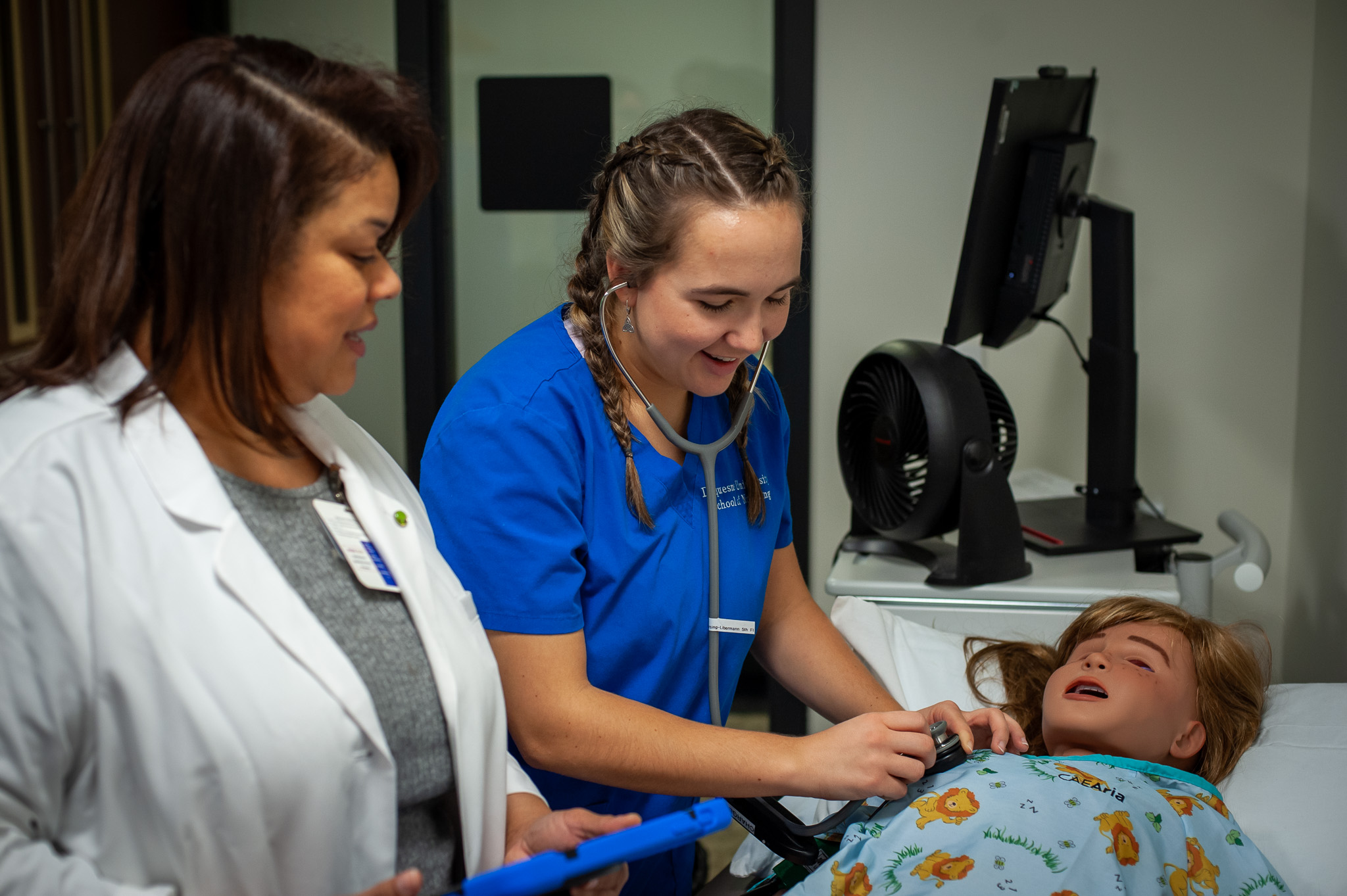Second Degree BSN
Pursuing a second degree in nursing can be a life-changing decision towards a rewarding career. By leveraging knowledge and experience from your first degree, our program is a unique opportunity to build upon your existing skillset and experiences. We provide you with a strong clinical foundation beginning in your first week of study. These hands-on learning opportunities take place in our many clinical sites and state-of-the-art Learning and Simulation Center.
By the end of the program, you will be prepared to become a Registered Nurse (RN). Our most recent class scored a 96.67% first-time pass rate on the NCLEX-RN licensure exam.
Attend a virtual information session to learn more about the Second Degree BSN program and your next steps to enrollment.
Applications for Fall 2026 open Aug 1.
REQUEST INFO
Apply Now
Scholarships
All admitted second degree students receive scholarships. Scholarships are available
up to $30,000.
"The second degree nursing program at Duquesne University is an opportunity for those individuals who want to be a nurse to have an accelerated program to work as that field, and we need nurses. There are an abundant number of opportunities for these individuals to make an impact on our mission of providing excellent care to our patients and families. At UPMC Children’s we love partnering with our friends at Duquesne to provide a pediatric experience for the second degree students should they choose to want pediatrics. We see the success stories and welcome the students commitment to our goals."
Gain Clinical Practice
Under the supervision of expert clinical faculty and nurse preceptors, you will gain clinical experience at hospitals and community facilities throughout the Pittsburgh area. These experiences are a great way to apply knowledge and theory gained in the classroom to your clinical practice.
Program Information
Earn a Bachelor of Science in Nursing (BSN) in 12 or 16 months through our accelerated Second Degree BSN program. This onsite nursing program is for those who already have a non-nursing bachelor's degree.
Program Type
Major
Degree
Bachelor's
School
Academic Department
Undergraduate Programs (Nursing)
Duration
12 or 16 months
Required Credit Hours
67
More about BSN Second Degree
We will help you prepare to be successful on the NCLEX-RN exam, which you are eligible
to take after graduation for licensure as a registered nurse (RN). Our graduates who
tested in the 2023-2024 cycle achieved a 96.67% NCLEX-RN Exam first-time pass rate. Fall Semester - 22 credits Spring Semester - 24 credits Summer Semester - 21 credits W = Writing Intensive Revisions to curricula are ongoing. Fall Semester - 19 credits Spring Semester - 18 credits Summer Semester - 12 credits Fall Semester - 18 credits W = Writing Intensive Revisions to curricula are ongoing. *** These four Specialty Courses are taken in the spring and fall semesters. Half
of the 16-month students will take Nursing for Children’s Health and Nursing for Maternal-Newborn
Health in the spring, and Behavioral Health and Population Health in the fall. The
other half will take the reverse sequence.NCLEX Ready
How Credits are Calculated
Prerequisites* taken for the Second Degree Program - 25 credits
Credits taken at Duquesne University School of Nursing in the Second Degree Program
- 67 credits
Total Credits for the Second Degree Program - 128 credits
*Prerequisites may be completed at any accredited college or university, and online
coursework is acceptable. For example, we do accept credit from Portage Learning, which offers all prerequisite courses required for the Second Degree program.
Curriculum


